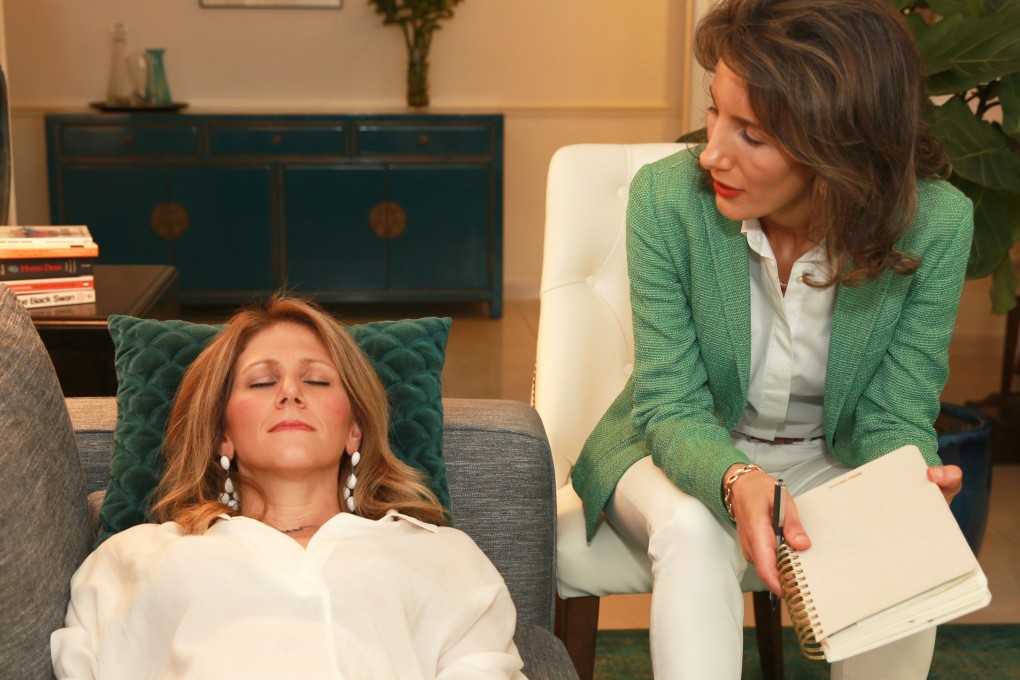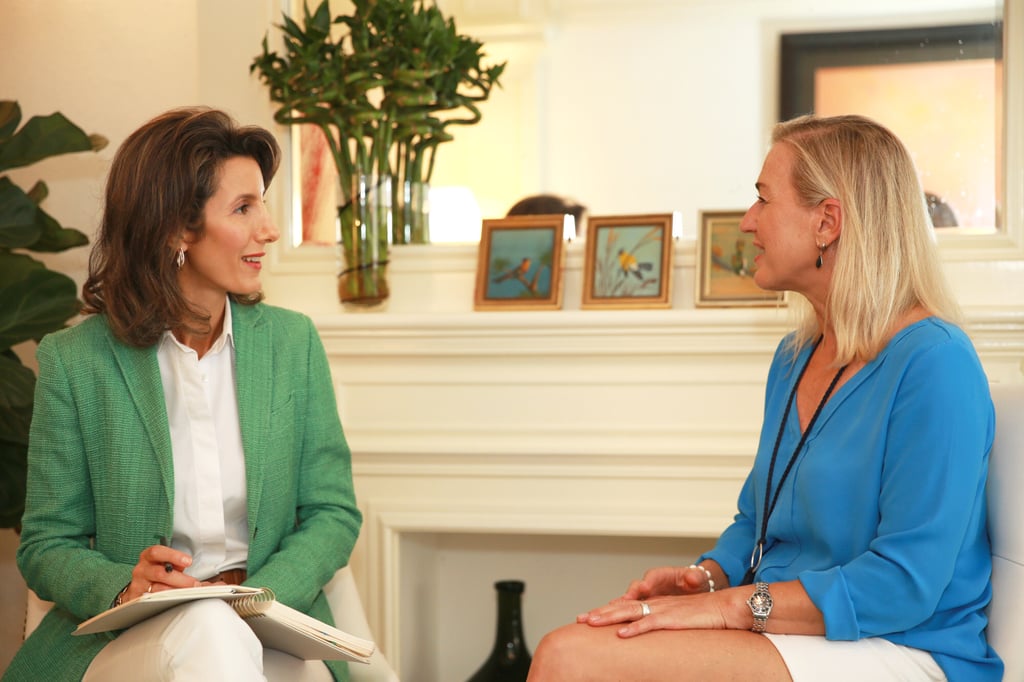Hypnotherapy on the go: app helps you relieve anxiety, depression and stress, sleep better and more - its creator explains her mission to make hypnosis mainstream
- Former banker Christine Deschemin studied hypnotherapy after learning a friend had used it to stop drinking, and created an app to make it more widely available
- The UpNow app, available in-flight to Cathay Pacific passengers, has helped many thousands of people, including former Hong Kong champion jockey Olivier Doleuze

The key to better health, greater happiness and well-being may lie in mastering our anxieties and overcoming a negative mindset - and hypnotherapy is a way to gain control over them. It could also help you feel less stress or quit drinking alcohol.
Hypnosis has been used to treat patients for ailments such as pain, depression and anxiety, and phobias for more than 200 years, but it is still commonly regarded with some scepticism.
Christine Deschemin, a long-term Hong Kong resident and a certified hypnotherapy practitioner, has made it her mission to make hypnosis mainstream. To that end she launched an app, UpNow, in May 2020 to share it with people around the world.
The 47-year-old had a lucrative career in finance, thanks to a degree in aeronautical engineering from the prestigious Ecole Polytechnique in France and an MBA from Harvard Business School, but it was in hypnotherapy – which she discovered entirely by chance – that she found her true calling.

Intrigued by this, she went on to study hypnotherapy at the Ecole Centrale d’Hypnose in France.